Clifford Garstang's Blog, page 11
July 1, 2023
2023 Reading–June
 Concrete by Thomas Bernhard
Concrete by Thomas BernhardConcrete by Thomas Bernhard is a short novel I picked up in Vienna last year when I went into an English-language bookshop and asked for a recommendation of a book by an Austrian writer. I’d heard of Bernhard, but don’t recall if I’ve read anything else by him. This was a quick read, written in a conversational, stream-of-consciousness voice. The narrator is Rudolf, an easily distracted musicologist who hasn’t accomplished anything and feels he has much to complain about. Formerly resident in Vienna, where his sister lives now, in the course of these ramblings he decides to leave his rural Austrian home to return to Palma, Mallorca, where he has been many times. When he gets there, he recalls getting tangentially involved in the personal tragedy of a German woman he once met there. A lot is being said here, and I think writers will especially appreciate the difficulty Rudolf has in getting started on his latest project for which he has spent the last ten years gathering materials. While the novel flows easily, it is written as one long paragraph, which is challenging.
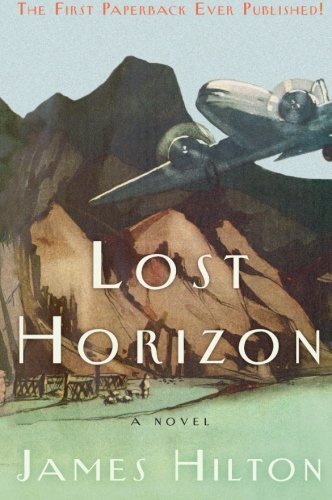 Lost Horizon by James Hilton
Lost Horizon by James HiltonLost Horizon by James Hilton is one of those books I suppose I thought I had already read. Published in 1933, it by now is something of a cult classic. The frame of the book is that a couple of Brits meet up and are chatting about this fellow Hugh Conway, a member of the Diplomatic Service whom they both knew some time ago. One of the men has an astonishing story to tell that Conway told him about the plane he’d been on that was hijacked to a remote Tibetan valley where he and his companions were invited to stay at Shangri-la, a mysterious lamasery. The tale becomes increasingly unbelievable and in the end, the two men have to decide what Conway’s credibility might be, given that he suffered terribly in the war. I listened to an audio version of the book but also had a paperback from the library for reference. I’m very glad I finally managed to read it.
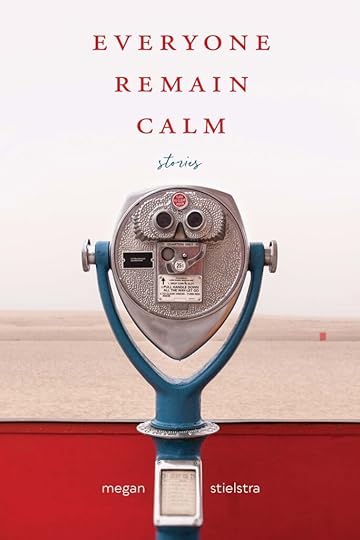 Everyone Remain Calm by Megan Stielstra
Everyone Remain Calm by Megan StielstraEveryone Remain Calm: Stories by Megan Stielstra. This story collection feels very similar to an essay collection by this author I read recently, both of which were reprinted by a university press. While I can’t say the stories aren’t well done, I can say that I didn’t care for them much, and for the same reason, I didn’t much like the essays. The essays and the stories seem to feature young women who drink a lot, go to loud concerts, and have sex. Nothing wrong with any of those things, but I find myself wanting the work to do more, to be about more, and it doesn’t seem to be. Again, the writing is fine; it just isn’t for me, personally. Having said that, I did quite like the title story, about a girl who develops a fear of wind after her mother is killed in a tornado.
 Nine Dragon Island by Eleanor Goodman
Nine Dragon Island by Eleanor GoodmanNine Dragon Island by Eleanor Goodman is a collection of poetry by a poet who also translates poetry from Chinese. (I became aware of her because I attended a Zoom reading where she was promoting one of her translated collections that I have since read.) While the poems here don’t feel at all Chinese to me, the book design is Chinese—it’s divided into three sections that are labeled with the Chinese characters for 1, 2, and 3 (一,二,三), and the last section includes poems set in Hong Kong and China. The title of the book is a reference to the part of Hong Kong known as Kowloon, which means Nine Dragon (九龙). (Kowloon is a peninsula, though, not an island, unless viewed metaphorically, so I don’t quite get it.)
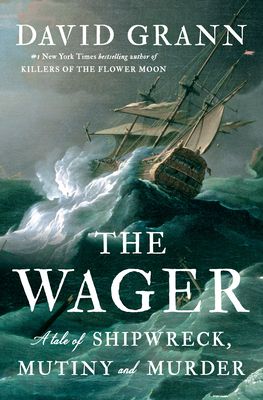 The Wager by David Grann
The Wager by David GrannThe Wager by David Grann is my book club’s selection for August, and I got a head start on it by listening to the audiobook in the car this month. The book is non-fiction about the shipwreck of a British naval vessel in 1741 off the coast of Chile. The ship was part of a group that was aiming to cause trouble for the Spanish fleet in a ridiculous conflict known as “The War of Jenkins’ Ear,” and got caught in the dangerous waters around Cape Horn. The castaways struggled to find food, and the chain of command eventually broke down, with many of the sailors rebelling against the captain. Years later, the survivors made it back to England, including the captain and the leader of the mutineers, and there was much finger-pointing and a court martial. It is an engaging story based on the journals of various participants in the saga. (The reading of the audiobook is overly dramatic, though.)
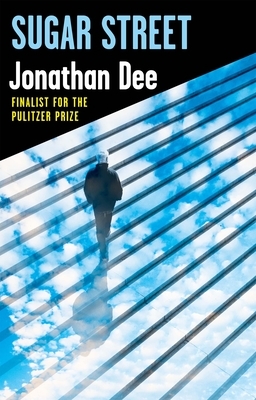 Sugar Street by Jonathan Dee
Sugar Street by Jonathan DeeSugar Street by Jonathan Dee is an odd, short book. (Dee was the chair of my thesis committee for my MFA program and also provided a wonderful blurb for my most recent book, Oliver’s Travels.) The unnamed narrator is fleeing from…something, and he’s attempting to lose/hide his identity along the way. So he avoids places where he might be photographed. He dumps his phone, his ID, and eventually, his car. He assumes a new name, although he doesn’t tell us what it is, and with the pile of cash he has—stolen, it seems—he rents a room in a town that also has no particular identity. The neighborhood where he has landed is reflective of a large part of America—angry people, refugees, brutal police. It doesn’t seem like there’s any way for his situation to end well. In some senses, this is a character study of a man who is struggling to let go of the most troubling parts of American life, but he can’t escape the feeling that he’s being watched and judged.
June 12, 2023
I’ve Got Questions for Jude Atwood
Editor’s Note: This exchange is part of a series of brief interviews with emerging writers of recent or forthcoming books. If you enjoyed it, please visit other interviews in the I’ve Got Questions feature.
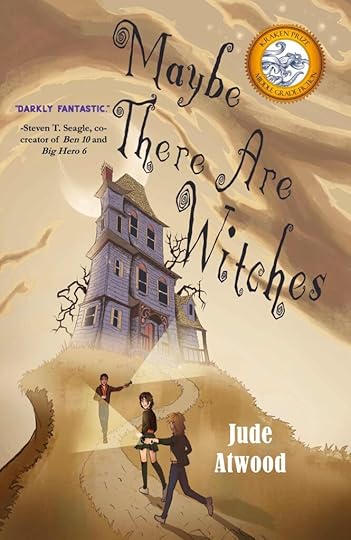 Maybe There Are Witches by Jude AtwoodWhat’s the title of your book? Fiction? Nonfiction? Poetry? Who is the publisher and what’s the publication date?
Maybe There Are Witches by Jude AtwoodWhat’s the title of your book? Fiction? Nonfiction? Poetry? Who is the publisher and what’s the publication date?My book is fiction: a novel called Maybe There Are Witches. It comes out June 13, 2023, from Fitzroy Books, an imprint of Regal House Publishing.
In a couple of sentences, what’s the book about?A middle school girl moves to a small town and discovers that her great-great-great-grandmother was executed for witchcraft there in the 1800s. After she finds a message addressed to her in a century-old book, she realizes that she and two local boys must stop a deadly catastrophe predicted by a 19th-century witch.
What’s the book’s genre (for fiction and nonfiction) or primary style (for poetry)?I like to call it a spooky middle-grade book. I think that term gives you a better sense of the story’s tone than “contemporary fantasy horror,” which would also be technically correct.
What’s the nicest thing anyone has said about the book so far?The book’s been fortunate to get some positive reviews from some very talented writers, but the one I’ll probably remember the most came from an author I’d met in a Zoom meeting who was the first person to offer to write a blurb. I sent him the manuscript and he texted me two days later to say, “Dude! Just read the first 50 pages. It’s good as hell. Totally caught up in it from the git-go.”
The review he eventually wrote might’ve been a little more polished, but I was really on cloud nine that he reached out just to say that.
What book or books is yours comparable to or a cross between? [Is your book like Moby Dick or maybe it’s more like Frankenstein meets Peter Pan?]It’s so weird that you’re asking that, because my book is exactly like Frankenstein meets Peter Pan, except they’re on the hunt for a whale that bit off a man’s leg and then swallowed a clock. (Wait, no…that’s not right. That’s the autobiography I’m working on; it’s called Moby, There Are Witches.)
Actually, Maybe There Are Witches fits into a subgenre that seems to be surging right now: scary books for young readers that have a sense of humor. Some of my influences are middle-grade authors I look up to like Ellen Raskin (author of The Westing Game), John Bellairs (author of The House with a Clock in Its Walls) and Louis Sachar (author of Holes).
Why this book? Why now?I tried to write the sort of book that I would’ve enjoyed reading when I was around 9-13 years old. But the only way I could think to do that was to try to write a book that I’d enjoy reading now, and just hope that my 9-13 year-old self would get with the program.
If I were a faster writer, this book would have been out years ago! But I think the extra time added some layers to the story.
Other than writing this book, what’s the best job you’ve ever had?I thought about this question and realized that my day job—my career—is the best job I’ve ever had. I’m a community college professor, and, while there are occasional frustrations, I get to work with a diverse bunch of—mostly—sincere and thoughtful students, and I get to work among colleagues who are inspiring. I’ve been very lucky.
Even if my book sells millions of copies, I’ll probably still teach. I just won’t teach summer school anymore. Or overload classes. And I might stop grading papers and going to committee meetings. So, once I’m rich, I’ll still teach…until I get fired.
What do you want readers to take away from the book?I didn’t set out to write a book that had a theme, or a lesson. I just wanted to write something scary and entertaining. But after I was done with this novel, I realized that it’s also a story about the stages of friendship, and the ways that we try to understand the people we meet as we get to know them better.
I’d like readers to take away this idea: there’s more to everyone than what we think we know. And more often than not, the time we spend getting to better know the people in our lives is time well spent.
What food and/or music do you associate with the book?When I started writing Maybe There Are Witches, it was a darker story, and I would probably have associated it with a song like Lana Del Rey’s cover of “Season of the Witch.” But the book I ended up writing is a bit more fun, so I’m inclined to think it needs a sprightly Danny Elfman theme, along the lines of the Beetlejuice main titles.
In terms of food, zucchini bread is the official sponsor of Maybe There Are Witches. Please enjoy some zucchini bread, or perhaps some zucchini muffins, as you read this.
What book(s) are you reading currently?I tend to read a few books at the same time. As I write this, I’m reading Tracy Badua’s middle-grade novel Freddie vs. the Family Curse and Sayaka Murata’s novel for grown-ups, Earthlings. I’m also listening to a nonfiction audiobook called Something Wonderful: Rodgers & Hammerstein’s Broadway Revolution by Todd Purdum, but it will take me a while because I don’t have any road trips planned…until the end of June, when I’ve scheduled a few author events in different cities! That’s the real reason I scheduled readings and book signings: so I can knock out more audiobooks.
 Jude Atwood
Jude AtwoodLearn more about Jude on his website.
Follow Jude on Facebook, Twitter, and Instagram.
Buy the book from the publisher (Fitzroy Books/Regal House Publishing) or Bookshop.org.
June 5, 2023
I’ve Got Questions for Edward Belfar
Editor’s Note: This exchange is part of a series of brief interviews with emerging writers of recent or forthcoming books. If you enjoyed it, please visit other interviews in the I’ve Got Questions feature.
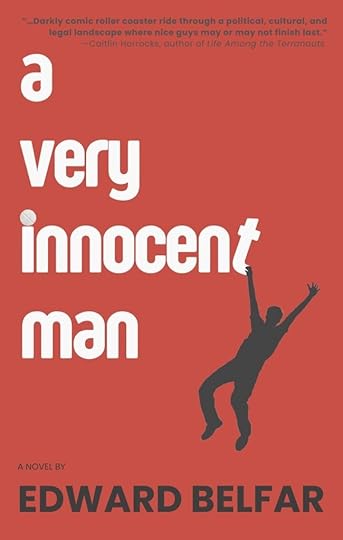 A Very Innocent Man by Edward BelfarWhat’s the title of your book? Fiction? Nonfiction? Poetry? Who is the publisher and what’s the publication date?
A Very Innocent Man by Edward BelfarWhat’s the title of your book? Fiction? Nonfiction? Poetry? Who is the publisher and what’s the publication date?A Very Innocent Man, fiction (novel), Flexible Press, June 6, 2023.
In a couple of sentences, what’s the book about?A Very Innocent Man covers a tumultuous year or so in the life of a New York City physician named Robert Rosen. As the novel begins, Dr. Rosen, who already has a successful practice, appears to be on the cusp of realizing his dreams of becoming a TV star. Appearing on a morning show in Chicago—his first gig in a major television market—he accuses his fellow practitioners of turning their patients into opioid addicts. Away from the cameras, however, the not-so-good doctor practices what he preaches against, selling opioid prescriptions for cash to his own patients and to a couple of Russian mobsters who run a bogus pain clinic. One of those patients informs on him, leading to his arrest by the FBI and the loss of his livelihood. When Dr. Rosen reinvents himself as a life coach and motivational speaker, his fortunes appear to be on the rise again, but he finds, to his dismay, that he cannot escape his criminal past. The Russians have not finished with him yet.
What’s the book’s genre (for fiction and nonfiction) or primary style (for poetry)?It’s classified as literary fiction/satire.
What’s the nicest thing anyone has said about the book so far?“A compelling and highly entertaining novel, A Very Innocent Man delves into the seedy worlds of illegal opioid sales, multilevel marketing schemes, and motivational life coach fakery. . . Very well written and employing razor-sharp humor that leans toward the satirical, Edward Belfar’s twisted redemption story perfectly mirrors the well-earned cynicism of our times. Highly recommended.” —Kathy Fish, author of Wild Life: Collected Works
What book or books is yours comparable to or a cross between? [Is your book like Moby Dick or maybe it’s more like Frankenstein meets Peter Pan?]A Very Innocent Man is something of an homage to Walker Percy’s Love in the Ruins, which was published in 1971 but set in an imagined dystopic near-future in which vines sprout through the rotting roofs of abandoned cars and medical and psychiatric disorders correlate with patients’ political beliefs. In contrast, the events in my novel take place mainly in New York, rather than Louisiana, and in a slightly altered recent past. What the two novels have in common is their sometimes grim but more often farcical depiction of an America riven by factionalism and decay. If my version is half as entertaining as Percy’s, I will be pleased.
Why this book? Why now?For me, Dr. Rosen embodies the shamelessness that so pervades public life in America today. In the 1957 film A Face in the Crowd, Andy Griffith stars as Lonesome Rhodes, a one-time drifter who rises to become a television star and political kingmaker. While eerily prescient in its caustic depiction of politics, mass entertainment, and the intersection of the two, when viewed in 2023, the film still strikes one as overly optimistic, even a touch naïve. The manipulative Rhodes receives his comeuppance at the end of the movie when, speaking into a hot mic, he inadvertently reveals his contempt for his viewers, who immediately turn on him. In 2023, by way of contrast, I have yet to see any convincing evidence to suggest that Donald Trump was wrong when he boasted that he could shoot someone on Fifth Avenue without losing any support. Today, you can’t keep a bad man down. In relating the story of Dr. Rosen, I attempted to explore why that is.
Other than writing this book, what’s the best job you’ve ever had?Though I spent much of my professional life employed as a writer and editor, I also worked for two years as a full-time writing instructor at Penn State University and for nearly a decade as a teaching assistant and adjunct instructor at various colleges and universities. Teaching was the only job I have ever had that did not feel like work. It felt more like an ongoing conversation—one that I would like to think enriched all participants.
What do you want readers to take away from the book?Mostly, I would like readers to enjoy the story, have a few laughs, and come away feeling adequately compensated for the investment of their time. Though some may find A Very Innocent Man to be fairly dark, I hope that the novel will leave most readers believing that kindness still matters and that the triumphs of those who lack that quality are transitory in nature.
What food and/or music do you associate with the book?The menu would heavily feature the New York deli fare favored by the Manhattan-dwelling Dr. Rosen: pastrami and corned beef sandwiches, hot dogs, knishes, etc.
A playlist for the novel would of necessity lean heavily on songs related to Dr. Rosen’s illicit side business. Were A Very Innocent Man ever to be adapted into a film (one can dream), the Beatles’ “Dr. Robert” would get a lot of play. Other entries might include the Jefferson Airplane’s “White Rabbit” and the Rolling Stones’ “Mother’s Little Helper.” For the Russian mobsters, I would include “Rasputin” by Boney M. The playlist would feature some Sinatra, too—“You Make Me Feel so Young,” and “Summer Wind,” to name a couple—because Dr. Rosen’s mother is a fan. Also, the Donizetti aria “Una Furtiva Lagrima” is mentioned in one scene that features the doctor’s brother.
What book(s) are you reading currently?I’m currently reading Olga Tokarczuk’s Drive Your Plow Over the Bones of the Dead.
 Edward Belfar
Edward BelfarLearn more about Ed on his website.
Follow him on Twitter and Facebook.
Buy the book from Bookshop.org, Amazon, or Barnes & Noble.
June 1, 2023
2023 Reading–May
 I Have Some Questions for You by Rebecca Makkai
I Have Some Questions for You by Rebecca MakkaiI Have Some Questions for You by Rebecca Makkai is a novel about a podcaster who returns to the boarding school she attended to teach a mini-semester class. The standout event from her time as a student at the school was the death of a classmate who at one time had been her roommate. A black employee of the school was convicted of the murder and has been serving time, but there have long been questions about his conviction which was based largely on circumstantial evidence. Meanwhile, the woman is separated from her husband but attempts to defend him from #MeToo allegations, which lands her in the same acid bath of knee-jerk criticism without facts. Included throughout is a litany of cases of murder and sexual abuse, and the structure of the narrative is that it is addressed to a teacher at the school whom the narrator believes was having an inappropriate relationship with the murder victim. I didn’t find the book as compelling as Makkai’s previous novel, The Great Believers, but it is eminently readable.
 Guardians of the Valley by Dean King
Guardians of the Valley by Dean KingGuardians of the Valley: John Muir and the Friendship that Saved Yosemite by Dean King is my book club’s selection for May. It’s wonderfully detailed with an account of John Muir’s life and his efforts to preserve Yosemite Valley. Along the way he becomes a founder of the Sierra Club (I’m now tempted to rejoin, although my membership lapsed years ago), a writer, traveler, and activist. The friendship of the title is with Robert Underwood Johnson, the editor of a magazine that was important at the time and publisher of many of Muir’s articles. (Johnson is from Centerville, Indiana, just ten miles from where my sister and her family now live.) The arc of the narrative follows their various battles with politicians and the interests that controlled San Francisco who wanted to build a dam in the valley to create a reservoir supplying the city with water. Terrific book.
 Poverty, By America by Matthew Desmond
Poverty, By America by Matthew DesmondPoverty, By America by Matthew Desmond is my book club’s selection for June, so I’m getting a head start. It’s an excellent examination of the causes and consequences of poverty in America and includes some proposals—including things that individuals could do—to “abolish” it. While most of us understand that poverty is a problem in this country, the book spells out many of the challenges it creates for people, from housing to education, to healthcare, to hunger, and the inadequacy of the programs that could but mostly don’t alleviate those challenges. Like Desmond’s previous book on the housing crisis, this is an eye-opener, and while solving the problems will take political will that seems unattainable, he believes it’s possible.
 Indistractable by Nir Eyal
Indistractable by Nir EyalIndistractable by Nir Eyal. I wanted to read this because, like many people, I am susceptible to distractions and wanted to get some tips on how to control them. I’d say that much of this book provided that–mostly in the form of ideas for taming my devices to leave me alone when I should be working or tricks to keep me from engaging with them until I really need or want to. I also like the way the book is written–shortish chapters with “Remember this” sections at the end to reinforce the main message of that chapter. The last two parts of the book were of no value to me because they deal with distractions in the workplace, such as interruptions from colleagues or intrusive demands on time (I work at home, by myself) and teaching children to manage their distractions (no kids). If your situation is different from mine, these sections may be valuable to you. (I listened to the author narrate the audiobook; if I’d had a physical copy of the book or even an eBook, I might have known those sections were coming and skipped them.) On the whole, I’m glad I read the book, although I may need to go over some of the early chapters again.
May 31, 2023
I’ve Got Questions for Stephanie Cowell
Editor’s Note: This exchange is part of a series of brief interviews with emerging writers of recent or forthcoming books. If you enjoyed it, please visit other interviews in the I’ve Got Questions feature.
 The Boy in the Rain by Stephanie CowellWhat’s the title of your book? Fiction? Nonfiction? Poetry? Who is the publisher and what’s the publication date?
The Boy in the Rain by Stephanie CowellWhat’s the title of your book? Fiction? Nonfiction? Poetry? Who is the publisher and what’s the publication date?The Boy in the Rain, historical fiction. Regal House Publishing on June 1, 2023
In a couple of sentences, what’s the book about?In the English countryside in 1903, shy art student Robbie falls in love with Anton who is running from memories of his failed marriage and lost child, beginning a relationship that will never let them go even as they grow and change. But the penalty for love between men is prison if caught and as they struggle to build a life together, the world about them is turning to a darker place.
What’s the book’s genre (for fiction and nonfiction) or primary style (for poetry)?Literary historical fiction LGBTQ
What’s the nicest thing anyone has said about the book so far?So much it’s hard to choose! “This powerful, sensual and lyrical love story between two young men literally took my breath away ― the love is so visceral, the pain so deep, the beauty so real, and the danger so palpable!” by NYT bestseller, M.J. Rose, author of The Last Tiara or “A masterpiece of longing, love, and empathy,” by Lauren B. Davis, author of Even So. “The Boy in the Rain is a provocative, delicious novel about a couple’s love, passion, and intimacy.” Foreword Reviews May 2023.
What book or books is yours comparable to or a cross between?It’s been compared to E.M. Forster’s Maurice
Why this book? Why now?I have loved this story for a long time. It began to haunt me 39 years ago when I was not yet a writer. I left my career singing opera and ballads and wrote many books, publishing several. But though I wrote many drafts of this one, it still wouldn’t come together, and various agents and editors felt my novels about great creative people such as Mozart and Monet would sell much better in the market. So I kept hiding the print-out of The Boy in the Rain away (literally!) in my closet. But a wonderful agent fell in love with it and helped me on. Then during the pandemic, I shut myself up in my apartment, finished it, and sold it. So why now? – Because I loved it more than any other and Covid was mowing down lives. I felt how precarious life was. I felt if I had time to do one more book, I would choose this one.
Other than writing this book, what’s the best job you’ve ever had?I loved my life as a singer. I remember singing the high soprano role of Gilda in the opera Rigoletto in the famous storm trio when my voice had to rise above the bass and mezzo-soprano and all the winds and horns of the orchestra and still be heard. I was singing to about 1000 people without amplification and the sense of physical stamina and joy flooded me. I sang in hundreds of places. I am writing a book about it, because I loved it so much.
What do you want readers to take away from the book?I hope they love my very human and often difficult characters, struggling not only with passion and differences and wrong-headed decisions, but under the murderous prison sentence for gay men in England which ruined the lives and health of over 50,000 men including Oscar Wilde and Alan Turing before it was repealed in 1967.
What food and/or music do you associate with the book?Fish and chips, whiskey and wine for food; Edwardian music hall songs, folk ballads especially sea shanties which Anton sings, and opera
What book(s) are you reading currently?American Arcadia by Laura Scalzo from my publisher Regal House and, for the sixth time at least, Cather’s My Antonia.
 Stephanie Cowell
Stephanie CowellLearn more about Stephanie on her website.
Follow her on Facebook.
Buy the book from the publisher (Regal House Publishing), Amazon, or Bookshop.org.
May 16, 2023
Book Awards for Oliver’s Travels!
Although Oliver’s Travels was published two years ago this month (Regal House Publishing, May 2021), I have recently learned that the book has won a Gold Medal from the Next Generation Indie Book Awards and was named a finalist for the Book Excellence Award. I am very excited by this news and hope it will attract new readers. (Hint: the book is available from the publisher, online retailers, and can be ordered from your favorite local independent bookseller.) To learn more about the book and to find links to sellers, go here.

May 8, 2023
Book Birthday X 3!
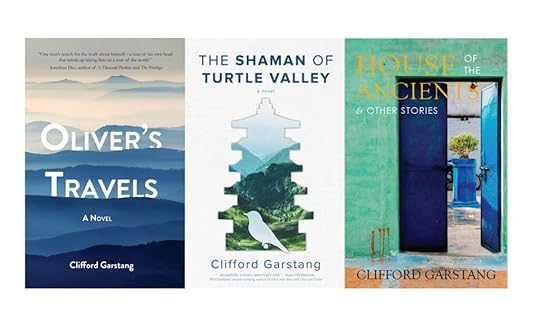
Happy Birthday to my three most recent books!
My first novel, The Shaman of Turtle Valley, was published by Braddock Avenue Books in May 2019. It’s a story about a young man who marries a Korean woman when he is stationed with the army in Seoul and brings her home to the mountains of Virginia. The book explores the theme of an outsider trying to fit in, but it also taps into parallels between Korean and American history and culture.
In May 2020, a couple of months into the pandemic, Press 53 published my third short fiction collection, House of the Ancients and Other Stories. It was NOT a good time to be bringing out a book. Although we made some attempts to attract attention on Zoom, I think we were all a little shell-shocked by what was happening around us. Anyway, the book includes stories set all over the world and features men behaving badly, but not without consequences.
Then, in May 2021, Regal House Publishing published my second novel, Oliver’s Travels. The book follows a young man, Ollie, as he searches for his uncle and the truth about the trauma he suffered as a child. Ollie, besides being a philosopher obsessed with the source of truth and knowledge, is an aspiring author and lives vicariously through his fictional alter ego, Oliver. It was a fun book to write and, I’m told, it’s both funny and thought-provoking.
May 1, 2023
2023 Reading–April
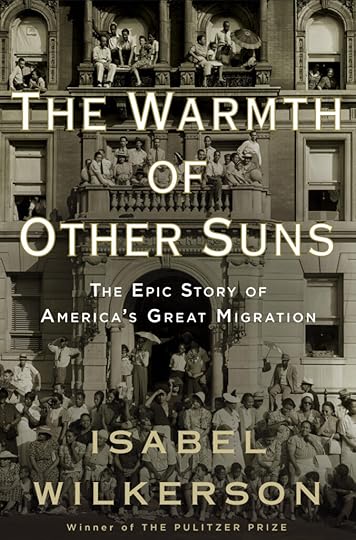 The Warmth of Other Suns by Isabel Wilkerson
The Warmth of Other Suns by Isabel WilkersonThe Warmth of Other Suns by Isabel Wilkerson is a truly great book I should have read before now. Last year, my book club read the author’s more recent book, Caste, but this one is the work that made her reputation. It’s about the great migration of Black Americans from the South to the North, focusing on three individuals from Louisiana, Mississippi, and Florida, who are representative of the migrants. Their stories are fascinating, and the way Wilkerson tells them—glimpsing each of them in turn, decade by decade as they begin their journeys and settle into their new homes—makes the book very readable and suspenseful. Along the way, the author details many of the atrocities faced by Blacks in the South that fueled the migration, but also the discrimination they faced at their destinations. The three migrants were very different in their origins (Louisiana, Mississippi, Florida) and their destinations (Los Angeles, Chicago, New York), but had other similarities. If you haven’t read this book, I highly recommend it.
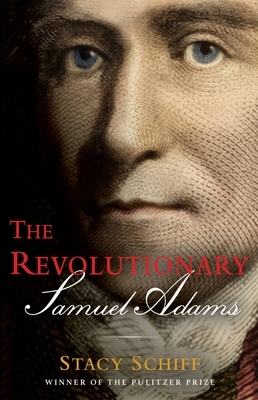 The Revolutionary: Samuel Adams by Stacy Schiff
The Revolutionary: Samuel Adams by Stacy SchiffThe Revolutionary: Samuel Adams by Stacy Schiff is a biography of the founding father and statesman from Massachusetts. I found it difficult to get through, to be honest. I’ve heard mixed reactions from other readers also (it was my book club’s selection for April). Maybe it’s because, as Schiff tells us early on, not much of Adams’s own writing survives and what we know of him we get from other sources. But the way she told the story didn’t help and at times was difficult to follow. Still, I learned things about Adams and his relationship with other founding fathers, so it wasn’t a waste of time.
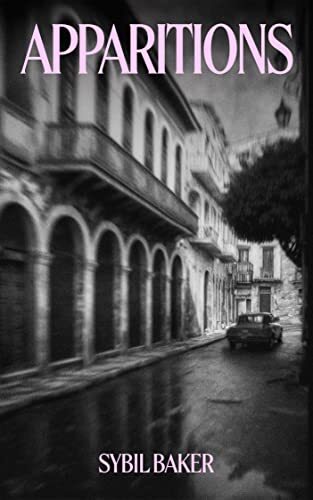 Apparitions by Sybil Baker
Apparitions by Sybil BakerApparitions by Sybil Baker is a book I was asked to blurb (Signal 8 Press, May 2023). It’s a short novel in which the narrator Simone travels with her friend Agnes to Cyprus for a memorial service for her ex-husband who has died there. Her plan is to disrupt the service by exposing the guy for having cheated on her and for generally being a manipulative narcissist. In this she will be aided by other former lovers of the man as well as former friends. But her ex was only 50, and she begins to think that his “heart attack” might have been murder, a poisoning by any of several suspects. In the meantime, Simone is haunted by people from her past—a brother who died in Vietnam, a former Korean student who drowned in a ferry sinking, and of course Guy, her ex. All are warning her about something, but she isn’t quite sure what it all means. Here’s the blurb I gave it: “In spare and emotionally heightened prose that calls to mind the work of Annie Ernaux, Sybil Baker’s new novel, Apparitions, is an intense psychological portrait of Simone, a woman haunted by her past. On a trip to Cyprus for her ex-husband’s funeral and bent on revenge, she is visited by a parade of ghosts who warn her not to be misled, paralyzing her with indecision. The book is a story of betrayal, but also one of disappointment and strangling regret. It’s a deeply satisfying mystery, too, as Simone seeks to understand what really happened to the man she once loved.”
 The Smugglers of the Sulu Islands by Ken Jackson
The Smugglers of the Sulu Islands by Ken JacksonThe Smugglers of the Sulu Islands: A Travel Memoir by Ken Jackson is a collection of short travel essays by a friend of mine. I knew Ken when I lived in Singapore and he lived in Hong Kong, working as in-house counsel for a client of my law firm. We hit it off and usually went out for drinks and dinner when he came to Singapore and on the fewer occasions when work took me to Hong Kong. An intrepid traveler, we even took a few trips together—to Cambodia, to Bangladesh, to Vietnam. Those jaunts must have been too tame, though, because they didn’t make it into the book. The stories that are there are mostly hilarious tales of misadventures at some of the most obscure and difficult to reach destinations.
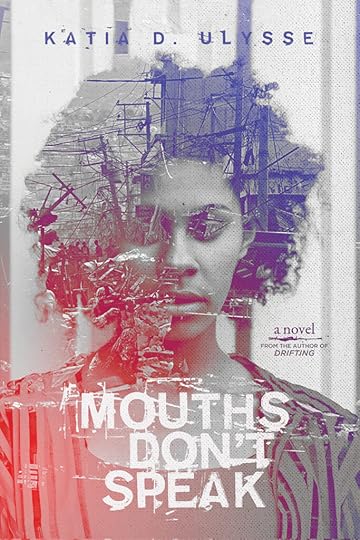 Mouths Don’t Speak by Katia D. Ulysse
Mouths Don’t Speak by Katia D. UlysseMouths Don’t Speak by Katia Ulysse is a story about a Haitian woman in Baltimore married to an American man. A teacher and painter, she is drawn back to her culture when Haiti is hit by a devastating earthquake. Although she isn’t close to her parents, she worries because she can’t get in touch with them. Her parents are wealthy and contrast with the prevailing ideas of poverty in the country, but the mother, in particular, is vile—so vile as to be nearly unbelievable as a character. Eventually, the main character returns to Haiti to visit, and the novel turns on the events during that visit. I thought the plot was too forced and the climax too melodramatic for my taste, but other readers might find it engaging because of those things.
 In it Together: The Beautiful Struggle Uniting Us All by Eckhart Aurelius Hughes
In it Together: The Beautiful Struggle Uniting Us All by Eckhart Aurelius HughesIn it Together: The Beautiful Struggle Uniting Us All by Eckhart Aurelius Hughes is a book I reviewed for the Online Book Club, which is a book review exchange. The philosophy of life offered by the author is admirable but derivative. Much of it is similar to the guidance Buddhism offers (see the Eightfold Path), but the author also quotes philosophers and theologians from other religions and traditions. Maybe it can all be summed up in one quotation it cites from Ram Dass: “Our journey is about being more involved in life, and yet less attached to it.”
April 3, 2023
I’ve Got Questions for Kathy Anderson
Editor’s Note: This exchange is part of a series of brief interviews with emerging writers of recent or forthcoming books. If you enjoyed it, please visit other interviews in the I’ve Got Questions feature.
 The New Town Librarian by Kathy AndersonWhat’s the title of your book? Fiction? Nonfiction? Poetry? Who is the publisher and what’s the publication date?
The New Town Librarian by Kathy AndersonWhat’s the title of your book? Fiction? Nonfiction? Poetry? Who is the publisher and what’s the publication date?The New Town Librarian, Fiction, NineStar Press, January 31, 2023
In a couple of sentences, what’s the book about?She’s here, she’s queer, she’s the new Town Librarian — but is it too late to make a fresh start? Queer middle-aged librarian Nan Nethercott, a wisecracking hypochondriac with a lackluster career and a nonexistent love life, needs to make a drastic life change before it’s too late. When she lands a job as librarian in a seemingly idyllic small town in southern New Jersey, Nan quickly discovers unforeseen challenges.
What’s the book’s genre (for fiction and nonfiction) or primary style (for poetry)?Genres: Contemporary, humorous, LGBTQ, women’s fiction, feel-good fiction
What’s the nicest thing anyone has said about the book so far?Lucy Jane Bledsoe, author of Tell the Rest, called it “laugh-out-loud funny.”
What book or books is yours comparable to or a cross between? [Is your book like Moby Dick or maybe it’s more like Frankenstein meets Peter Pan?]Elizabeth Strout’s Olive Kitteridge meets Helen Fielding’s Bridget Jones’s Diary
Why this book? Why now?Older women in books and on screen are often relegated to the dreadful D plots: depression, divorce, dementia, death. We deserve books that celebrate older women leading full-spectrum, pleasure-filled lives! And queer older women are almost invisible in books and on screen, in our youth-obsessed culture. Since female Baby Boomers are a major demographic in the US, they are way overdue for more representation in books and popular entertainment.
Other than writing this book, what’s the best job you’ve ever had?Librarian in small-town public libraries
What do you want readers to take away from the book?It’s never too late to get the life you want. Public libraries are the best places in the universe and librarians are invincible forces for good in the world.
What food and/or music do you associate with the book?Italian deli food and homemade red wine
What book(s) are you reading currently?Next up in my library book haul: Love Marriage by Monica Ali, Collected Works by Lydia Sandgren, and All the Secrets of the World by Steve Almond
 Kathy Anderson (photo: Burkett Photography)
Kathy Anderson (photo: Burkett Photography)Learn more about Kathy on her website.
Follow her on Facebook and Twitter
Buy the book from the publisher (NineStar Press), Amazon.com, Barnes & Noble, or Bookshop.org.
April 1, 2023
2023 Reading–March
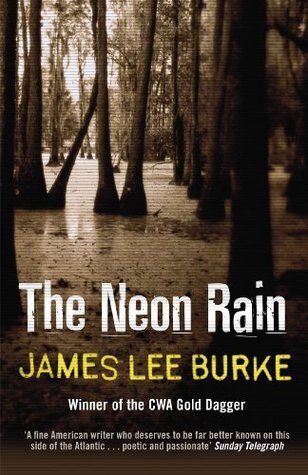 The Neon Rain by James Lee Burke
The Neon Rain by James Lee BurkeThe Neon Rain by James Lee Burke is the first in his series featuring Lt. Dave Robicheaux. When he is visiting a death-row inmate at the infamous Angola Prison, just hours before the inmate’s execution, Robicheaux learns that someone wants to kill him. He later discovers that the Colombian drug cartel might be behind that threat because of a body he had discovered in the bayou that he considers suspicious but that the local sheriff had ruled a routine drowning. Add in gunrunning to Nicaragua, a corrupt CIA operative, and some local hoods, plus a romantic interest for Dave, and you’ve got a fast-paced thriller with sex, drugs, and violence—especially violence. Given the first-person narration and Dave’s rough persona, I found the book to be overwritten. This isn’t the first Burke novel I’ve read, but it might be my last. I know a lot of people are fans, and it’s reasonably entertaining as an audiobook, but it just isn’t for me.
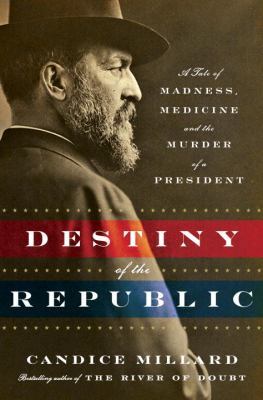 Destiny of the Republic by Candice Millard
Destiny of the Republic by Candice MillardDestiny of the Republic: A Tale of Medicine, Madness, and the Murder of a President by Candice Millard is about the brief presidency of James A. Garfield. It’s a crazy story about a man who didn’t seek the presidency and was probably nominated for that reason amid his party’s in-fighting. He showed great integrity and promise but was shot by a nut who thought he was doing the country a favor. The book goes into the shooter’s thinking in depth, based on his letters and testimony, which is fascinating research. But Garfield might not have died if the doctors around him had been better informed. The bullet didn’t kill him, as the shooter actually argued at trial, it was the malpractice of the doctors who allowed deadly infections to spread. A side story is the involvement of Alexander Graham Bell who, hot off the invention of the telephone, invents a metal detector that might have helped find the bullet lodged in Garfield’s body if the doctor had allowed Bell to use it on the president’s left side instead of the right, where the doctor insisted the bullet must be.
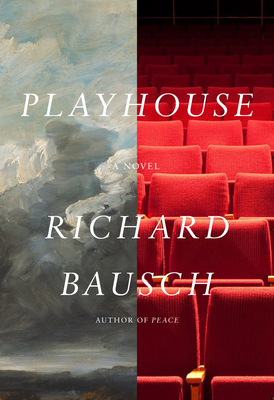 Playhouse by Richard Bausch
Playhouse by Richard BauschPlayhouse by Richard Bausch appealed to me because I studied with the author at the Sewanee Writers’ Conference and have stayed in touch with him over the years. I was also interested in the book because of the subject matter, which deals with the revival of a Shakespeare theater in Memphis (where Bausch once taught). There’s a large cast of characters (and a cast list at the beginning, as befits a story about a theatrical production) and the story is told from many different points of view. Except that it isn’t particularly funny, the situation reminded me of Slings and Arrows, the Canadian TV series about a Shakespeare festival in Canada. My interest in the subject stems from my own involvement on the Board of Trustees of the American Shakespeare Center, where I’ve witnessed variations on the drama and intrigue Bausch portrays in the novel. I don’t think this is my favorite of his novels, but it was an engaging read.
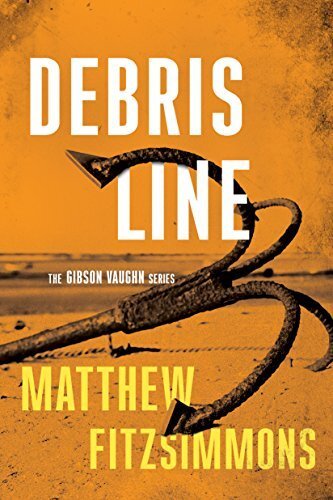 Debris Line by Matthew FitzSimmons
Debris Line by Matthew FitzSimmonsDebris Line by Matthew FitzSimmons is a thriller set in Portugal and part of his Gibson Vaughan series. I might not have begun this book (on audio) if I’d realized this is the 4th book in that series, so that there’s already a lot of history between Vaughan and some of the other characters who are all on the run for some reason and currently hiding out in Portugal. In this book they are hosted by a crime boss who runs the Algarve region of that country, but their stay is threatened when the crime syndicate comes under attack from an unknown source. It’s a combination of cyberattack and drug smuggling, and the question is whether Vaughan’s hacking skills can save them all, or at least the Americans. There are other crimes being committed here, too, that will factor into the resolution of the story. The writing isn’t bad and it’s an enjoyable listen. I doubt that I’ll try to go back and read the earlier books in the series, though, and it might be my last by this author.
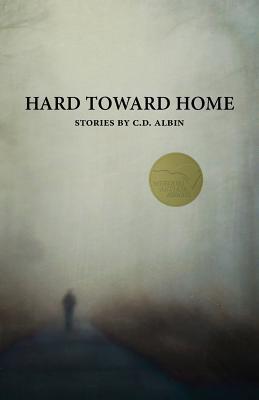 Hard Toward Home by C D Albin
Hard Toward Home by C D AlbinHard Toward Home by C.D. Albin is a collection of short stories (Press 53, 2016) set in Arkansas. I don’t remember how or why I came to have this book, although I have a lot of books from this press (which has also published 3 of my own collections), but I might have picked it up because of the haunting cover. Anyway, the stories are quite good, dealing with the pressures of small-town life in the heartland. Some of the characters are teachers, like the author, others are farmers or retired blue-collar men who worked in construction or other trades. Real people, real conflicts. I’m a fan of endings that aren’t too neat, and Albin seems to prefer these also.
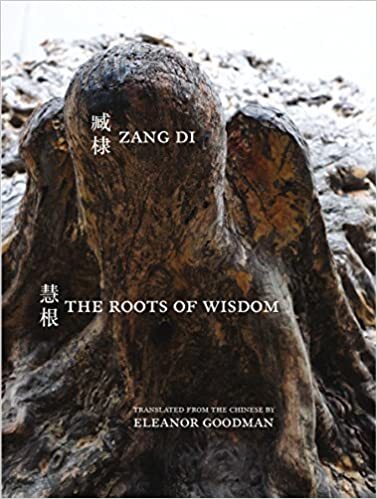 The Roots of Wisdom by Zang Di
The Roots of Wisdom by Zang DiThe Roots of Wisdom by Zang Di, translated by Eleanor Goodman, is a bilingual book of modern Chinese poetry. I’m glad I have the bilingual edition because I am able to read (a little of) the original and learn from Goodman’s excellent translation. Unlike classical Chinese poetry, which I also enjoy, these poems are more recognizable in their form and subject matter. I became aware of Zang Di and Goodman when I attended an online reading at which Goodman appeared along with some other poets and translators. It was enjoyable and I ended up ordering several of the featured books. So, more to come in this vein at some point.
 A Man’s Place by Annie Ernaux
A Man’s Place by Annie ErnauxA Man’s Place by Annie Ernaux is the second book by this recent Nobel prize winner I’ve read in recent months, having picked them up while traveling in Europe late last fall. This one is a memoir (although the other one, Simple Passion, a novel, closely tracks a real event in her life). Writing about her father, Ernaux’s spare prose is highly revealing. The relationship between her and her father vacillates, which feels very real, and it’s interesting to read the story of an ordinary man in the French countryside who is just working hard to support his family, dealing with the various challenges that come his way trying to run a grocery and café.



